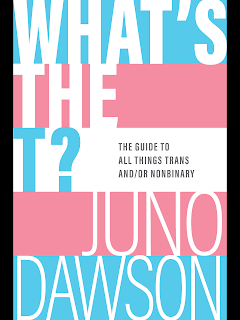It is certainly trendy to blame everything that is wrong with the world on my generation ("Okay, Boomer") and, to be fair, there is plenty of blame to go around, but as McKibben points out we Boomers were born during a rather long span (the years 1946-1964) - a population over about 70 million people which "means you're making generalizations about populations larger than France or England". We can look at Zoomers (those born between 1997-2012 - a population which includes my own child) and find fault with their addiction to fast fashion and shake our heads at the problems of sustainability it causes. At the same time I can also see that they are leading the way in seeking racial justice, fair wages, and health care reform.
McKibben grew up in Lexington, Massachusetts, just up the road a piece from my own home in the Bay State. He describes his childhood home as "like a child's drawing of a suburban home: a square block with a door and a window on the ground floor and two windows on the story above". I expect that the second story in the "child's drawing" was triangle shaped. This describes my own house as well. McKibben uses the house as a starting point in the book and moves from there to descriptions of his schooling, first jobs, and the history of the area to explore some bigger questions on race and the common good.
McKibben is clearly a fan of libraries and indicates that he has made good use of them throughout his life. Early in the work he describes a lecture given in 1970 by Ralph Nader at the town library in which he [Nader]
blast[ed] both air pollution and hot dogs, which he called "innovations to relieve food companies of all their crud".
I've always been a fan of Nader and voted for him in the epic presidential election of 2000.
Further McKibben describes walking past the town library in 1971 (where he was "already a regular in the downstairs children's room") as part of a protest of the Vietnam War, led by another later presidential hopeful John Kerry, leader of the Vietnam Veterans Against the War.
As a high school student McKibben got a job giving tours of the Lexington Battle Green. Donning a tricorn hat he regaled tourists with tales of the Battles of Lexington and Concord. In order to get such a job
you needed to pass a test...administered by the venerable rector of the local Episcopal church...He handed you a reading list, and you repaired to the town library's local history room for long days of study.
In one passage he demonstrates the importance of libraries through their absence. Eighteenth century Lexingtonians, according to Richard Kollen "the most determined chronicler of the town's religious history", would have
attended an average of seven thousand sermons in a lifetime, that meant they heard fifteen thousand hours of preaching from their pastor. (And of course that was pretty much all heard, in an era with no theater, no library, no radio, no internet).
It would seem that today's far right politicians and Christian Nationalists would prefer that we return to this as they remove books from libraries and attempt to censor legislators who speak out for an end to gun violence, and basic rights for transgender people.
Meanwhile, McKibben tells us that people's interest in libraries, theater going, and even sports has been waning in recent years.
Everything that the affluent possess in private has swelled in size... and what we share in common has been allowed to decay.
This is evident in California's passage of Proposition 13 in 1978
which sharply limited the ability of cities and towns to assess taxes. Local property tax revenues dropped 60 percent overnight, and though the state filled some of the gap, services like education suffered immediate hits from which they never recovered...They cut maintenance, assistant principals, librarians...in south LA, or the north-eastern San Fernando Valley the library opens rarely...
City and town libraries suffered as well with summer and after-school programs cut. Some branches were closed, or hours had their hours shortened.
Finally, McKibben gives props to "Lexington's superb Cary Memorial Library" in providing access to back copies of the Lexington Minuteman which allowed him to do the research for this book.
Post Script:
To answer the question posed by the subtitle of this work ("What the hell happened?") I submit that we really should have listened to Bill McKibben back in 1989 when he wrote The End of Nature. But we didn't.



